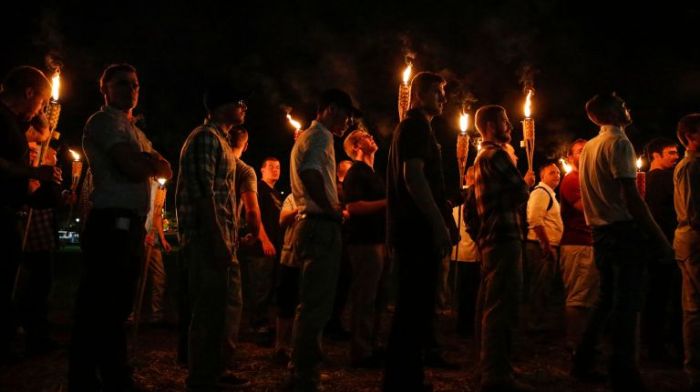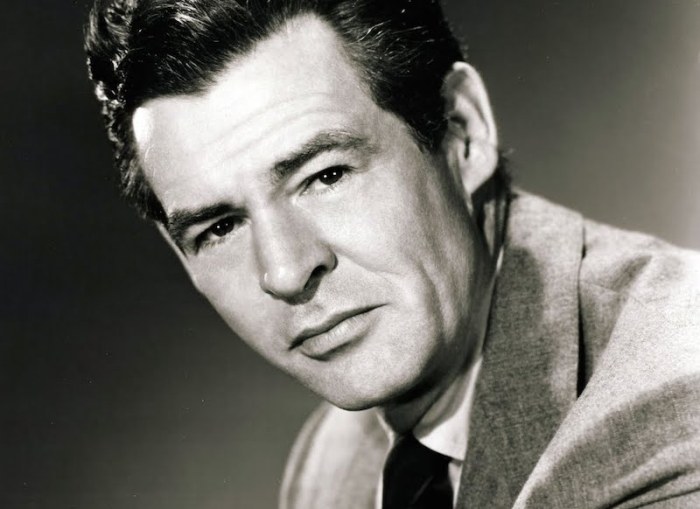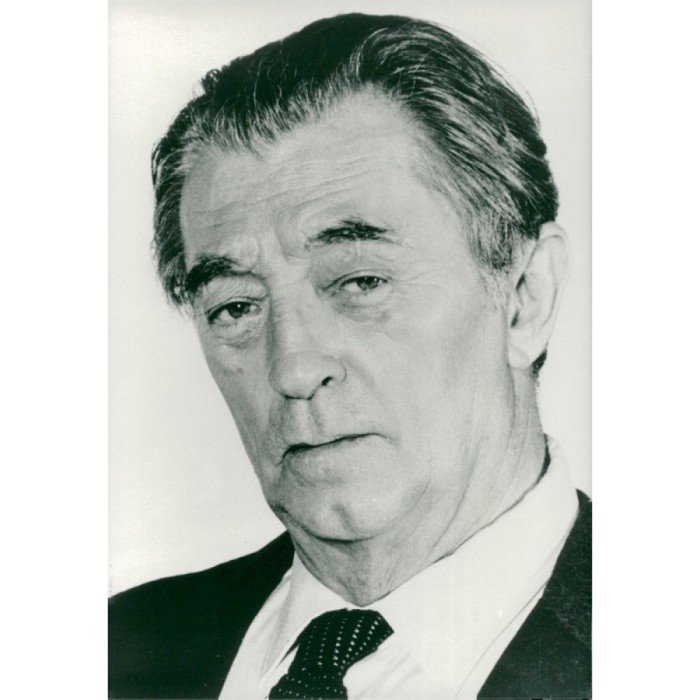A friend today posted a review on Facebook about the film, “Schindler’s List” which he had just seen for the first time, 25-years after the acclaimed movie’s release. My friend talked about the film’s haunting power, its narrative about one man’s brave quest to save a number of Holocaust victims from death.
It’s based on a true story and Schindler holds a special place in Israel for his efforts.
Stephen Spielberg said he made the film to honor its hero, Oscar Schindler and remember all the Holocaust victims, those who were saved and the many who weren’t.
The film — with current headlines about neo-Nazi and white-supremacist rallies in the United States and elsewhere — feels more relevant than ever. The recent attacks on Synagogues in Pittsburgh and anti-semitic incidents in Massachusetts — leave people wondering: “Have we forgotten?”
Wounds are raw from last year’s ugly Charlottesville KKK rally that claimed one life and left our President issuing comments about “perpetrators on both sides.” Antisemitism and racism continue to be headline stories more than 75-years after millions gave their lives in a war that should have ended those injustices.
 Obviously not. There have been a few “message” movies that deal with those still festering issues which many insist no longer exist. Dissidents say it’s more “fake news” from the liberal media. So many ostriches with their heads in the sand.
Obviously not. There have been a few “message” movies that deal with those still festering issues which many insist no longer exist. Dissidents say it’s more “fake news” from the liberal media. So many ostriches with their heads in the sand.
The other night I revisited the movie “Crossfire” which was released by RKO in 1947, the year before the more acclaimed “Gentlemen’s Agreement” was released. This drew public attention and “surprise” about Antisemitism in post-war America.
“Crossfire” is an excellent, understated film about this virulent subject matter. Its director, Edward Dmytryk (a victim of Sen. Joseph McCarthy’s infamous “Blacklist) used the plot of a small group of GI’s, just mustered out of the war and trying to fit back into society.

Circa 1955: Studio headshot portrait of Canadian-born film director Edward Dmytryk (1908 – 1999). (Photo by Hulton Archive/Getty Images)
They encounter a friendly civilian at a bar who listens to their complaints about readjustment and offers sympathy where others just tune them out. One of the GI’s — lonely for his wife and exhibiting PTSD symptoms — is befriended by the civilian who invites him home for drinks and quiet conversation.
The other soldiers – uninvited — crowd into the apartment and lap up the booze. One of them, a very obnoxious vet — sneers at men who avoided combat, who got rich running banks and law practices. He looks at one of his confused pals and yells: “Jews, man! You know those people! They get rich while we fight and die. Jews!”
The civilian referred to as “Sammy,” is tolerant. Veteran actor Sam Levene who played many similar roles is perhaps overly patient with the bigoted GI. This is Robert Ryan in one of his most chilling villain roles.
The secondary plot has “Sammy” murdered by one of the GIs. The PTSD soldier is fingered as the suspect but we know better. Robert Young, in a pre “Father Knows Best” role, plays the tough, weary cop who sifts through all the alibis. This is one of Robert Mitchum’s early films. He is excellent as the soft-spoken, no-nonsense veteran who is suspicious of the venomous Ryan character.
Ryan is ultimately outed as he rants about “those people.” He gets what he deserves and is gunned down during a police chase on a rainy New Orleans Street.
The final scene with Young and Mitchum in conversation about Ryan’s demons ends quietly as they go their separate ways, both wondering what World War Two was really all about.
In an early 1970s interview, Robert Mitchum remembered “Crossfire.” He was in Boston shooting “The Friends Of Eddie Coyle,” so I had the good fortune to spend a long afternoon into the evening over drinks with “Mitch.”
In a wide-ranging conversation, Mitchum recalled what it was like working in the 1940s, especially with “The Blacklist” hovering over Hollywood. He said some pals urged him not to do “Crossfire” because it would hurt his career.
“Mitch” grinned at me “You know what that was all about, Don’t ya?” I nodded. Mitchum continued, “There were so many hateful bastards — there were always dissing Negroes (he looked at me and I nodded an ‘okay’) and Jews. They always thought I was with them. I had a few fights and dumped a few jobs because I couldn’t stand the two-faced bastards.”
I looked at Mitch and confirmed: “Not much has changed.” He shook his head sadly and ordered another round.
That was almost 50 years ago. No, not much has changed. Not on the silver screen or in real life.
Categories: film, Film Review, Garry Armstrong, Hatred and bigotry, History, Politics






 REEL AND REAL: HATE LIVES ON – GARRY ARMSTRONG
REEL AND REAL: HATE LIVES ON – GARRY ARMSTRONG  INTOLERANCE: REEL AND REAL By GARRY ARMSTRONG
INTOLERANCE: REEL AND REAL By GARRY ARMSTRONG
i never knew this about mitchum and like him even more for it
LikeLiked by 1 person
Ksbeth, he was really a nice, very funny guy. You would’ve enjoyed him. Very respectful of women without making it a big deal.
LikeLiked by 1 person
A perfect combo
LikeLiked by 1 person
Ksbeth, yes.
LikeLiked by 1 person
Great post, Garry. I never met the gentleman, only saw him once in the famous Schwab’s drugstore in my neighborhood when I was sixteen years old. I know he was a victim of the Bad Boy monicker, but everything I heard about him from people who did know him was that he was knowledgeable and intelligent. That’s the side that you interviewed.
LikeLiked by 1 person
“Mitch” and I hit it off — felt genuine to me. As you know, I met a lot of the old “legends”. He was the real deal. I have to send you an email, checking your memories of some of the “folks” you knew.
LikeLike
I didn’t know that Robert Mitchum was of such good character.
Leslie
LikeLiked by 1 person
Leslie, my admiration of Robert Mitchum shot up after our get-together. The best, most honest conversation came after we shut off the cameras and sat down for lunch and a “few” drinks. He was natural, laid back, humorous and very direct. No phony Hollywood stuff. He was “the real deal” and well regarded in the film industry where they separated the decent people from the phonies. “Mitch” was the target of many unfounded tabloid stories – often encouraged by Howard Hughes (The RKO boss where Mitch worked). Hughes was jealous of Mitchum. The Robert Mitchum encounter was one of the perks of my career.
LikeLiked by 3 people
Very nice write up about him Garry. Be sure to put him in your book. (Nobody is going to know this unless you write about it)
Leslie
LikeLiked by 1 person
Right-o. BTW: we were drinking scotch neat. I stayed with the big guy.
LikeLiked by 1 person
That takes a tough constitution Garry.
LikeLiked by 1 person
Leslie, I could do it in those days. Eventually, it caught up with me. Stopped in ’04. Now I’m a raspberry lime rickey guy.
LikeLiked by 1 person
That’s a better choice Garry…
LikeLiked by 1 person
Leslie, so true. Took me many years to figure it out.
LikeLiked by 1 person
You did a big favour for Marilyn by finding that out. My father never stopped and it cost him my mother’s life from the stress of it all.
LikeLiked by 1 person
Leslie, Marilyn and the family stayed with me through some dark times. I’m forever grateful.
LikeLiked by 1 person
That is what family is for and does, Garry.
LikeLiked by 1 person
Hate is so scary. Hate kills without a gun. So much hate in the world.
LikeLiked by 2 people
Yes, Scribbles, is very scary. Face to face hate is beyond scary as you try to find reason. The daily tweet tirades encourage the dark forces.
LikeLiked by 1 person
They sure do! I’m hoping the end (of the chief tweeter) is getting closer.
LikeLike
Very hard to take when the world is in one of its always recycling dark periods. It’s like the dark side has to get it out of its system until it finally reaches its peak and goes underground to rest again. Over and over. Does it seem like the cycle is speeding up though, with the violent “mean” periods coming more quickly?
LikeLiked by 1 person
Yes. It feels like everything is speeding up but not just a little. A LOT!
LikeLiked by 1 person
…. and in the wrong direction….
LikeLike
Life, it sure seems to be recycling, darker and darker, every day. Current leadership certainly is a catalyst.
LikeLiked by 1 person
So much so that I’m actually looking forward to the “Apocalypse” where, supposedly, God has to step in and curb the misdoings of his creation, once and for all.
LikeLike
I think he should get a hustle on that one. Things are crumbling rather fast.
LikeLike